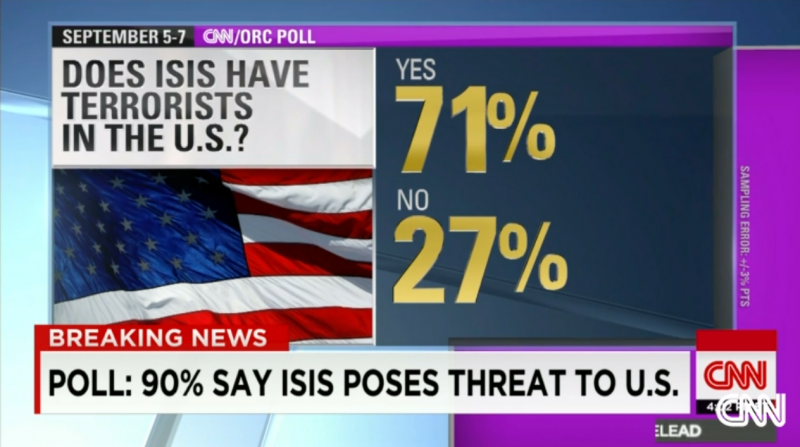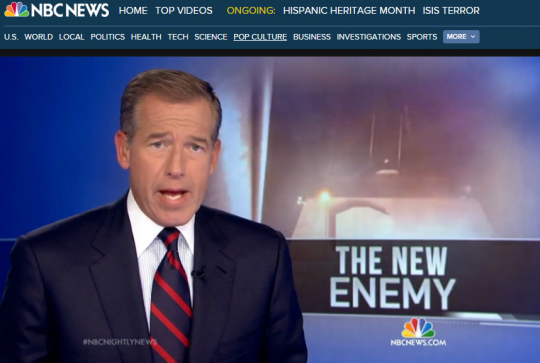Khorasan Bombing Is Obama’s Fake Solution To America’s Fake Problems
On Sept. 3, President Barack Obama made the mistake of being honest with America. When addressing what steps the country would take to combat the group he calls ISIL, he conceded, “We don’t have a strategy yet.” Which makes sense, as it’s impossible to have a plan when fighting an impossible fight against unknown opponents.
But the American public didn’t see it that way, instead decrying Obama as a weak leader unable to stand up against the evil Islamists murderers. Then, a week later, Obama spoke again, this time providing an exaggerated four-point plan to apparently “destroy” the amorphous, unbeatable threat that we’ve simplified into the acronym ISIL (or IS or ISIS). The speech’s format comically stressed structure, as if the presence of order could overcome the complexities of trying to bring calm to a region steeped in chaos.
READ MORE: President Obama Promises To 'Degrade And Destroy' ISIL
The murders of James Foley, Steven Sotloff and David Haines are disgusting, but they served a dangerous role in the American perception of the Islamic State as a direct threat to America. American media rhetoric around ISIL has painted them as a well-organized network of combatants who will stop at nothing to wage war on American soil.
And Americans have listened. A CNN/ORC International poll from Sept. 8 shows 71 percent of Americans think ISIL has terrorists in the United States. It’s this fear, not talk of human rights violations or genocide against Middle Eastern groups, which drives Americans to demand a “plan” from Obama. But asking if ISIL is a threat to Americans is not a question of yes or no, but of how much.

There are many terrorist organizations that pose hypothetical threats to Americans, but fear is not a legitimate justification for war, as we’ve so aptly proved through the ridiculously named “war on terror.” But here we are again, ready to fight our latest self-created enemy.
READ MORE: Obama Supports U.N. Plan To Treat Every Terrorist Group Like Al-Qaeda
The strikes will keep coming and the reports will keep flowing. We’ll read about the capture of cities we’ve never heard of and be assured that they’re strategic checkpoints. We’ll hear of deaths of people whose names we can’t pronounce and be told that they’re military leaders. We’ll be promised things are getting better, and that our advanced techniques of decapitation by missile are beating their barbaric knife-in-hand approach.
It has already started. The first round of coalition (a grown up word for everyone send a plane or two) airstrikes struck Islamic State targets, but also hit a new target, the shady “Khorasan.” US intelligence told media this group is actually more dangerous than ISIS, as they pose an “imminent threat” to the United States.
Targeting this new threat, maybe even killing their leader, allows the cable news-watching public to breath easy. Crisis averted!
But while the Islamic State is American-created in that they draw their passion from American killing of their family members, evidence suggests the Khorasan is American-created in a much more literal sense. The Khorasan is probably just part of Jabhat al-Nusra, the Syrian branch of Al Qaeda, but Obama can’t say that. Bombing the Islamic State is based on a campaign painting them as a barbaric offshoot of Al Qaeda, deemed too brutal for our traditional terrorist enemies. So rather than repeating the mistake of telling America the truth, the Obama administration decided: let’s just make stuff up. And in fairness, it does makes sense to target a fake group to end a fake threat.

It’s trite to paint Obama as the false prophet of change, but on the eve of the thirteenth anniversary of the 9-11 attacks on the World Trade Center and the Pentagon, Obama announced increased bombing in Iraq. You know, just like George W. Bush before him, and just like Clinton before him, and just like George H.W. Bush before him. New group, new name, new bombs - that’s Obama’s change.
Obama probably has to do something, but bombs cannot bring stability to the Middle East. Violence can damage extremist groups and improve the short-term situation in Iraq and Syria, but each apparent victory for the United States will only strengthen extremism in the long term.
Contact Contributor David Tobia here; follow him on Twitter or Google Plus.



